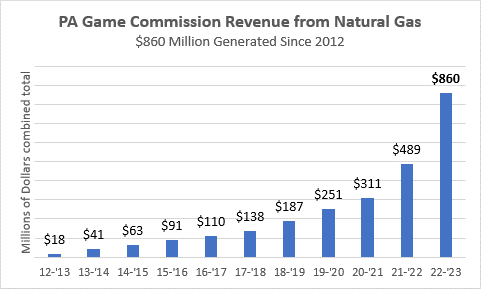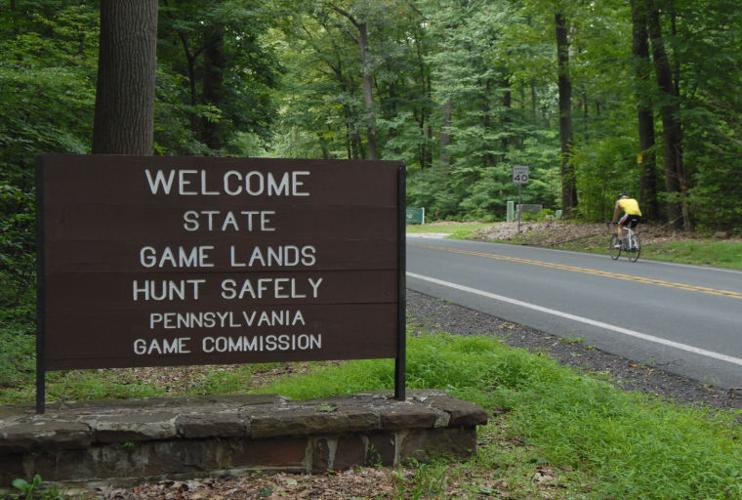Natural gas lease, royalty and right of way payments to the Pennsylvania Game Commission (PGC) will set another record this fiscal year, providing funds to expand and conserve public lands and critical habitats across the state.
According to the Executive Budget submitted to the General Assembly by Governor Shapiro last month, the PGC will receive approximately $370 million from natural gas revenue for fiscal year 2022-2023. This revenue is supporting projects that otherwise “never would be able to [be done] without these additional funds coming from oil and gas,” Director of PGC’s Bureau of Wildlife Habitat Management David Gustfason told the Erie Times-News.
The years’ returns are a nearly $200 million increase over the nearly $178 million received in fiscal year 2021-2022. All told, over the past twelve years, the PGC has received nearly $900 million in revenue from responsible natural gas development. The $370 million projected for this current fiscal year is approximately seven times the revenue the PGC generates from hunting and trapping licenses and fees, and it has allowed the PGC to avoid increasing fees.
Road and infrastructure upgrades, game and state protected land preservation, habitat conservation from invasive species, and developments for outdoor recreational facilities are just a few of the many benefits resulting from the longstanding partnership between PGC and the state’s natural gas industry.
Most recently, the PGC was able to acquire 137 additional acres of land for public access, including one often referred to as Waggoner’s Gap Hawk Watch.
“That’s a property that’s going to be geared almost 100% to wildlife watching,” Gustafson said, noting such properties appeal to more than those with hunting licenses.
Moreover, monies from the state’s impact tax on natural gas development also supports statewide conservation projects. Of the $234 million generated last year alone, $105 million was allocated to environmental programs and regulatory oversight, including:
- Marcellus Legacy Fund: $86,030,934
- County Conservation Districts, State Conservation Commission: $8,860,241
- Pennsylvania Department of Environmental Protection: $6,000,000
- Fish & Boat Commission: $1,000,000
- Pennsylvania Department of Transportation: $1,000,000
- Pennsylvania Public Utility Commission: $1,000,000
- Office of the State Fire Commissioner: $750,000
These record returns and opportunities afforded by natural resource development should be a model for other state agencies and entities seeking similar revenue streams for critical public needs, while simultaneously protecting and enhancing the natural resources of the Commonwealth.

Permitting reasonable non-surface disturbance leasing of state forest lands, for example, relieve financial pressure the Department of Conservation and Natural Resources (DCNR) is facing to make basic infrastructure upgrades.
The Department is asking for more than double last year’s budget – jumping from $56 million to $112 million – in order to fund a portion of the estimated $1.4 billion needed for new roads, water machinery and to upgrade roughly 4,700 buildings and 139 dams on publicly-owned lands it manages.
“You have assets that could be used to fund every project that you’re talking about,” Senator Gene Yaw told DCNR Secretary Dunn during the budget hearing.
“I look at it as like you’re sitting on a Mega Million-winning lottery ticket, and you won’t cash it.”
These facts lay clear the value that the natural gas industry brings to the Commonwealth, from funding state agency programs, improving local communities, enhancing environmental and conservation programs, as well as supporting countless philanthropic programs throughout the state.





